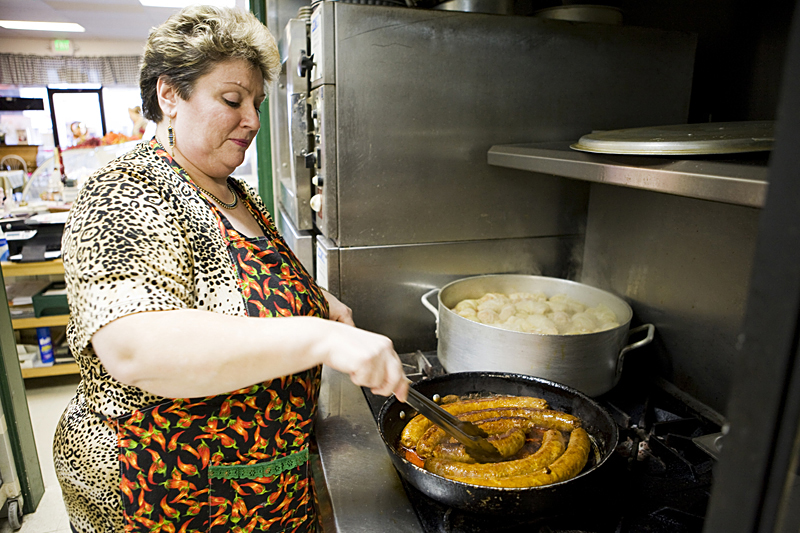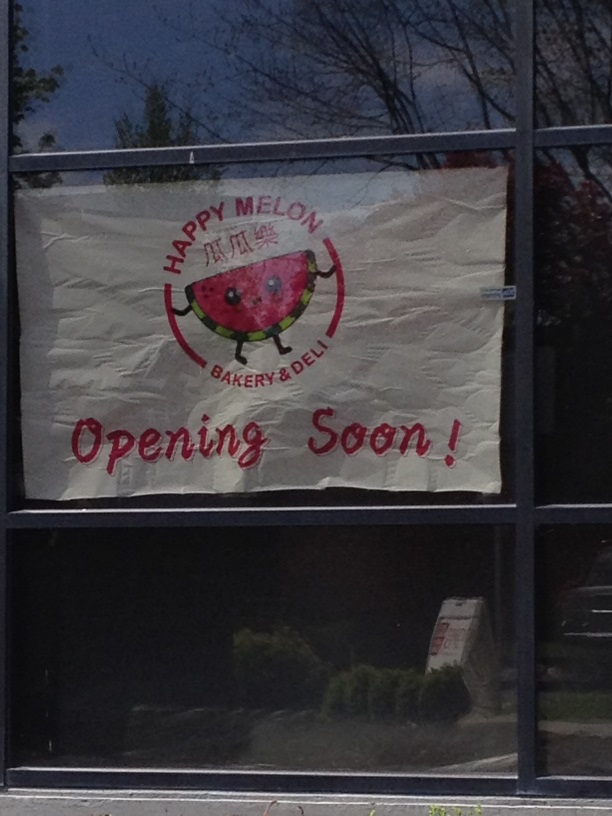American restaurants have lately taken a piggy turn so sharp that chefs risk catcalls from cliché-attuned diners every time they confit a pork belly. Eaters have thankfully moved past the heady, intense first stage of bacon romance, during which bacon hot sauce, bacon mayonnaise, and woven bacon casseroles were greeted as important culinary breakthroughs (a fervor that coincided almost exactly with the nation’s wars in a pair of predominantly halal countries). But menus still bear the hickeys of the headlong affair: Bartenders add cracklings to their Manhattans, bakers put bacon in their doughnuts, and high-end chefs laud pig ears and trotters.
Still, no matter how many pork chops and sausages a restaurant issues, it doesn’t stand a chance of out-swining a restaurant specializing in Hungarian cuisine. Forget the veal goulash and chicken paprikash—those dishes might make cameo appearances on Hungarian tables, but the country’s diet has been ruled by pork—and pork fat—since Magyars living in the Carpathian Basin learned how to tame wild boars. Centuries of cooking with pig meat (as well as paprika, garlic, and sour cream) have produced a canon of rich, earthy, and delectably fatty dishes that could keep your insides warm for a week.
It’s unfair to the splendid Budapest Bistro to label it as the best place in greater Seattle to sample traditional, lard-enhanced Hungarian cookery, since it has remarkably little competition in the category. It is that, to be sure, but it is also a restaurant that unstintingly offers the kindness, good cheer, and faraway flavors diners seek when they venture out for a meal. Home-style cooking and care are at the heart of Elizabeth Muszka’s extraordinary decade-old enterprise; the cauliflower soup is just commentary.
The region’s Eastern European expat community is well-acquainted with Budapest Bistro, which serves as a meeting spot for the state’s Austria Club. Members regularly gather around a long table to drink tart red wine, eat doughy knuckles of spaetzle, and—judging from the reception granted a gray-haired woman who told a convoluted, punning yarn about a package from Worms—trade the same Teutonic jokes.
Unaffiliated Austrians, Germans, and Hungarians find their way to the tiny Lynnwood restaurant, too: Budapest Bistro’s guest book, shelved alongside a few dated magazines and a West German almanac, is crammed with testimonials from customers who stop just short of printing their passport numbers to prove their congenital credentials for appraising cabbage and pork. On one recent evening, a plate of Wiener schnitzel pricked a lone diner’s sense of nostalgia so deeply that he passed up dessert, choosing instead to stare longingly at a map of Hungary while finishing his beer.
Yet while the restaurant’s inspired devotion among locals with Eastern Bloc roots, it’s registered with very few eaters from other cultural backgrounds. “Nobody knows we’re here,” one of the restaurant’s two servers told me. “I lived down the block and I didn’t know about it.”
That must be due in part to Budapest Bistro’s location in the back corner of a strip mall. The fluorescent-lit restaurant is furnished with eight tables and a mishmash of chairs, including a few wheeled brown pleather seats that probably did time in a den. The centerpiece of the room is a large deli case, installed by the previous owner, a firm believer in the economic potential of lunch. Budapest Bistro uses the case to house a dozen homemade cakes and German beer. Homey touches abound: The storefront window is frocked in a gingham valance, and the back wall is absorbed by a bright mural of a barrel-chested soldier and a damsel in a pinafore, meeting beneath a banner reading “Meals and memories are made here.” The servers wear dirndls, the bouncy biergarten outfits that fill the St. Pauli Girl’s closet.
There is no printed menu at Budapest Bistro. Instead, guests are prompted to choose from the two or three entrées listed on a whiteboard that’s updated daily. Regular customers know they can call a day or two before dining to place their entrée requests. There’s no beer or wine list, either: Guests describe their preferences—light or dark, dry or sweet—and Muszka, a Hungarian native, decrees what they’ll drink.
Every entrée comes with soup or salad and a basket of bread. On days when Muszka finds extra time in the kitchen, the bread is homemade, and so exceptionally good that the restaurant is prone to expend its supply of thawed butter pats before diners get their fill of it. The chewy bread is stiffened with rye and blazes with a sourness that’s a capable sparring partner for Budapest Bistro’s rich soups and sauces. The plain, white, industrial-tasting backup bread is a cue to forgo starches by the slice and instead save belly room for Muszka’s always-housemade spaetzle, eggy and tender. The side should accompany any dish with sauce in need of sopping, including a hardy beef stroganoff enriched with slips of bacon.
Hungary is rainy in the summer and snowy in the winter, which may explain the national affection for soup. Both of the varieties I sampled at Budapest Bistro had the same internal structure: Thick and creamy, the stout soups were bolstered by a paprika tang and seeded with bits of carrots and diminutive pasta shells. A velvety mushroom soup with the alluring fattiness of slow-cooked pot-roast gravy was especially good. The salad selection typically includes one made with greens, one with marinated cucumbers, and a crunchy, peppery slaw worth ordering even if there’s bound to be braised red cabbage or a heap of biting sauerkraut on your entrée plate.
Budapest Bistro doesn’t have a set recipe for sausage, confided our server, whose friend helps Muszka and her husband tackle casings, spices, and pork, a weekly chore that’s extra arduous because the restaurant doesn’t have a mixing machine. Its leather-skinned sausages, served two to a plate, are hearty even by sausage standards. Dashed with hunks of bacon and pocketed with pork fat, the smoky ground pork sausages, dark as charred marshmallows, sound a full scale of flavor notes.
Diners who prefer their pork with fewer footnotes will fancy the plate-crossing Wiener schnitzel, pounded tissue-thin, encased in a frisky layer of gorgeously seasoned breading, and pan-fried. The dish is neat and orderly, unlike Muszka’s pungent pork sauerkraut stew. The stringy stew, which looks like a bad hair day, is marvelous, and only more so doused with sour cream. Accompanied by a rockslide of jagged parsley potatoes, glossy with butter, the stew deserves to be sponsored by Hungary’s tourism board.
In a Hungarian restaurant, there must be pastry, and Budapest Bistro doesn’t disappoint. Muszka makes pistachio cakes, raspberry cakes, coconut cakes, and a zillion other pastel-colored concoctions plumped with custard and cream. The genuinely friendly servers will point out whichever dessert’s the freshest, but my favorite was a rolled pastry which juxtaposed the dusty sweetness of poppy seeds with the syrupy sweetness of ripe plums.
Just as Budapest Bistro doesn’t fuss with paperwork at the start of a meal, neither does it bother with presenting a check at its end. When guests are finished, they’re directed to approach the cash register, where Muszka reviews the charges and makes a pitch for a final purchase. “She’s going to hit you up for chocolate,” our server warned us on our first visit, motioning to the metal shelves stocked with candies and pickles.
On our second visit, we knew what to expect. “One more time, you’re regulars,” the same server told us. I have a hunch I’ll be back more than once.
Price Guide
Lunch entree $10.99
Dinner entree $12.99
Pastries $3.50–$3.99








